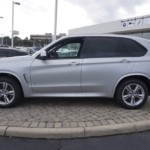Whether your fleet of commercial vehicles has been a dependable asset of your business for years, or you’re just learning that your personal vehicle may qualify as a commercial vehicle, it’s important to keep in mind the importance of keeping your commercial car or truck fully insured.
And while veteran entrepreneurs may already be aware of the benefits of commercial vehicle insurance, small business owners and enterprising individuals can also enjoy the benefits. Commercial vehicles are more than just large trucks and taxis. There are a number of different vehicle types, from tipper vans to panel vans and even cars, which can be covered. Some insurers will even cover any heavy equipment you may haul in the course of your job.
If you’re looking for to add extra insurance coverage for a personal vehicle you use to transport goods, people, or tools as part of a business or job, then this guide should help get you started. Read on for more information on commercial vehicle insurance requirements and the kinds of coverage you can get for your commercial vehicles.
What Vehicles Are Considered “Commercial?”
Commercial vehicles can range from large vehicles, such as passenger buses, flatbed trucks, and cement mixers, all the way down to what most would consider everyday vehicles. For instance, a pizza delivery driver personal vehicle he uses for work would be eligible as a commercial vehicle and benefit from commercial vehicle insurance.
As long as you are using your vehicle for work, whether working for a ride-sharing service or hauling tools to a worksite, your vehicle can and should be covered under commercial vehicle insurance. However, some drivers may not even realize that their vehicles may classify as commercial vehicles.
Nontraditional commercial vehicles can include pick-up trucks, legally speaking, depending on the vehicle’s weight ratings. Any vehicle designed to transport 16 passengers is automatically considered a commercial vehicle. But your personal pick-up may also be considered to be a commercial vehicle depending on how heavy it is, how much it is designed to tow, and whether or not it is used for more than commuting during the course of work or business.
Why Personal Vehicles should become Commercial Vehicles
The main reason your personal vehicle may require commercial vehicle insurance goes beyond securing your work-related vehicle. There are, in fact, some scenarios when personal car insurance will be inadequate when filing specific claims, especially when using your vehicle while on the job.
Imagine an independent contractor pulling his Chevy onto the highway after being called out to conduct an estimate. Debris on the road creates an accident up ahead, and now the contractor’s truck is totaled. While the driver may be safe and sound, his vehicle may not be as covered as he thinks. Insurance companies differentiate between personal and commercial policies as a way to factor in the increased risks of vehicles used as part of a business or work enterprise.
If our independent contractor’s truck has permanently installed tool boxes or ladder racks, his vehicle may need more coverage than his personal policy offers. Likewise, if a woman is driving for a ridesharing app, her personal insurance policy may not cover any damage her vehicle may receive while driving other passengers.
Not receiving insurance benefits can cripple a small business, especially in the event that an entirely new vehicle is required for your business to be up and running. Commercial vehicle insurance can help you feel secure in utilizing your personal vehicle for work purposes, but that’s not all that comes with these kinds of policies.
Coverage Available for Commercial Vehicles
Luckily for most drivers, insurers offer commercial vehicle insurance in a number of useful packages, ranging in both coverage type and amount. Commercial vehicle insurance can also help cover additional business expenses as well. Policies from Esurance can extend to equipment stored or hauled by your vehicle, as well as an entire fleet of commercial vehicles, which can also include provisions for vehicle downtime and maintenance. These benefits can include the cost of a rental vehicle.
Geico offers specific plans for those who use their commercial vehicles as part of a ridesharing platform, such as Lyft or Uber. The policy covers all liability, including property damage and bodily injury. This coverage can also be extended to cover all physical damage or hit-and-run drivers. With liability coverage alone, you can insure yourself against civil suits from injured passengers as well as property damage in the case of an accident.
Other policies, such as those from Progressive Commercial and Erie Insurance, are more tailored to business and fleets. With policies that can include wrongful death or disability coverage to non-owned coverage, these insurance plans keep employees protected when using vehicles not owned by the company. These policies are can cover a variety of commercial vehicles, including trucks and trailers. Erie Insurance is also notable for legal expense and bail bond coverage, in the event an employee is arrested at the scene of an accident.
Some of these policies may not apply to every situation, but with so many different kinds of coverage and policies, piecing together the coverage you require is a simple task. By speaking with your insurance provider, you can likely work out a plan that appropriately covers your enterprise. And with some research, drivers can find a number of different rates and liability policies to choose from. Insuring one or a whole fleet of commercial vehicles can protect your business and save quite a bit more hassle than acquiring it will cause.
By now, you should know all you need to take your small business to the next level, as well as avoid running into any messy insurance situations down the line. The untimely loss of a vehicle can spell doom for an upstart business, and the loss of equipment or tools can be just as devastating to some. If your vehicle is a vital part of your work day, don’t hesitate in getting the appropriate level of coverage that your business requires. Ask your insurance provider if you qualify for a commercial vehicle insurance policy today.



